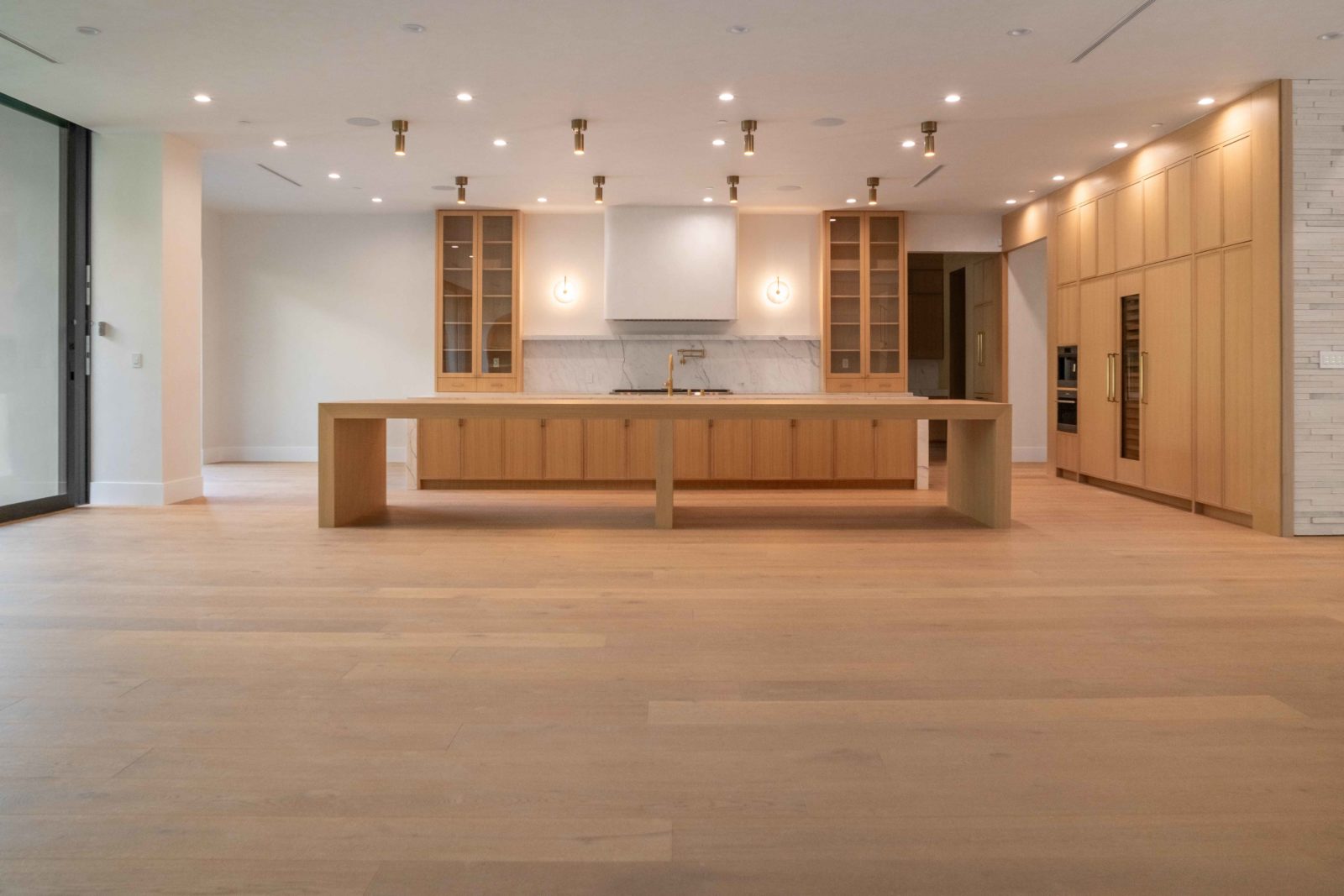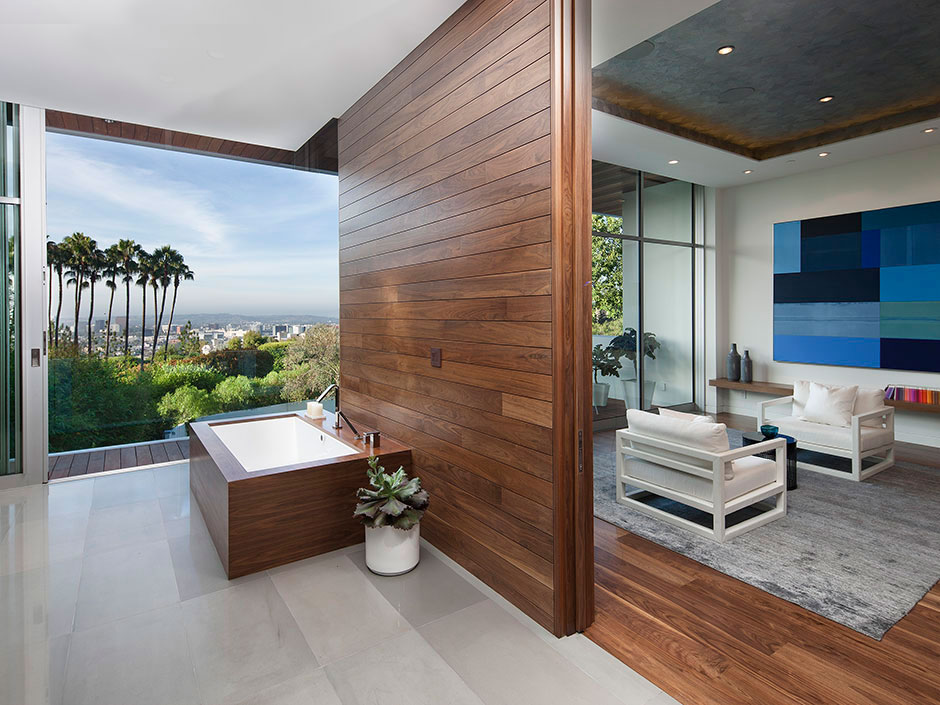
When choosing engineered hardwood flooring, durability is a top consideration. Whether you have a busy household, pets, or high-traffic areas, selecting the right type of wood can make all the difference. But which engineered hardwood flooring is the most durable? The answer depends a variety of factors including, but not limited to, the wood species, the wear layer thickness, and the finish.
Understanding Durability in Engineered Hardwood
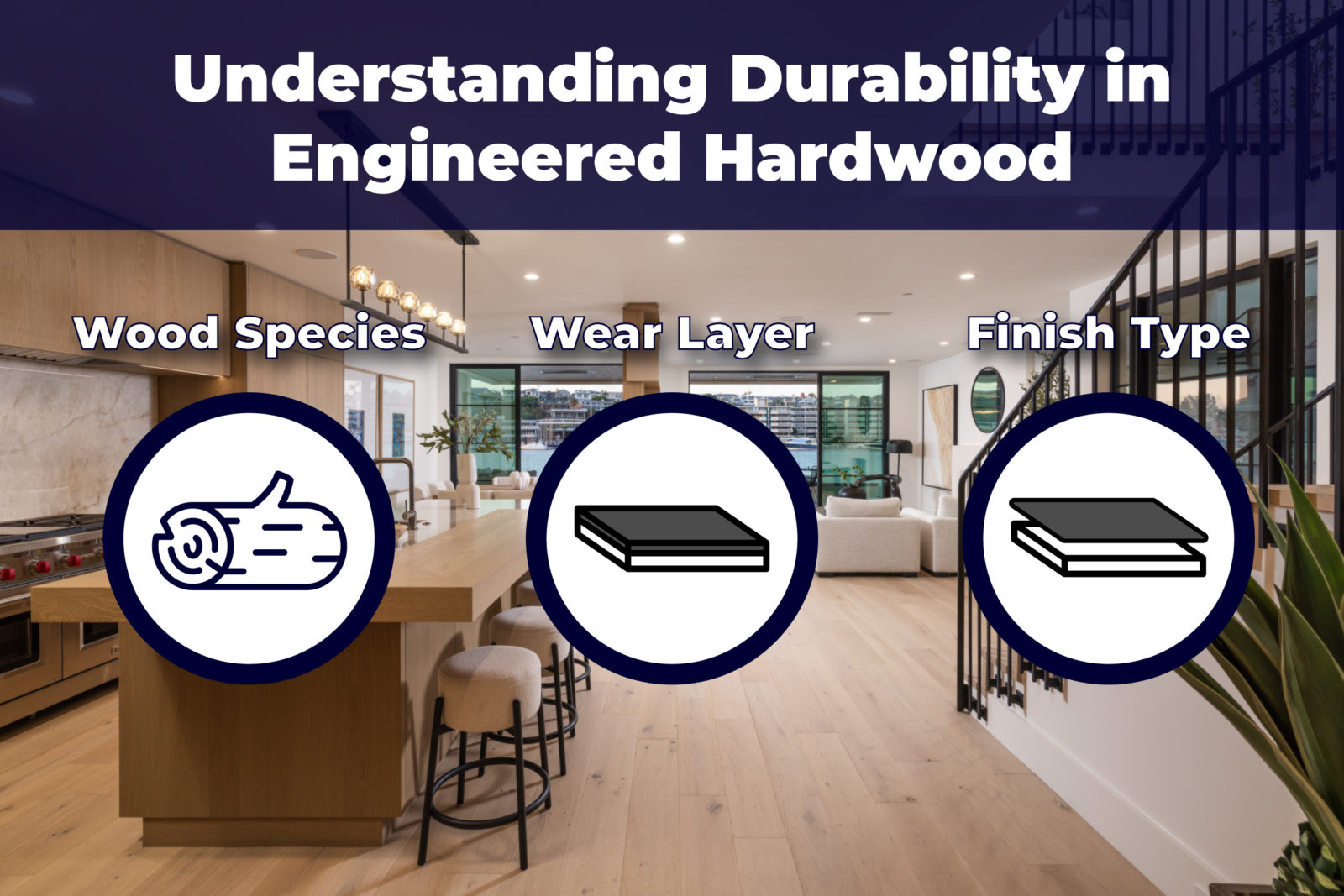
Engineered hardwood consists of a real wood veneer over a stable plywood, preferably Birch, or high-density fiberboard core. The durability of engineered hardwood is primarily influenced by:
- Wood Species: Harder woods resist dents and wear better.
- Wear Layer: A thicker wear layer allows for refinishing and extends longevity.
- Finish Type: High-quality finishes add extra protection against scratches and moisture.
The Role of Janka Ratings
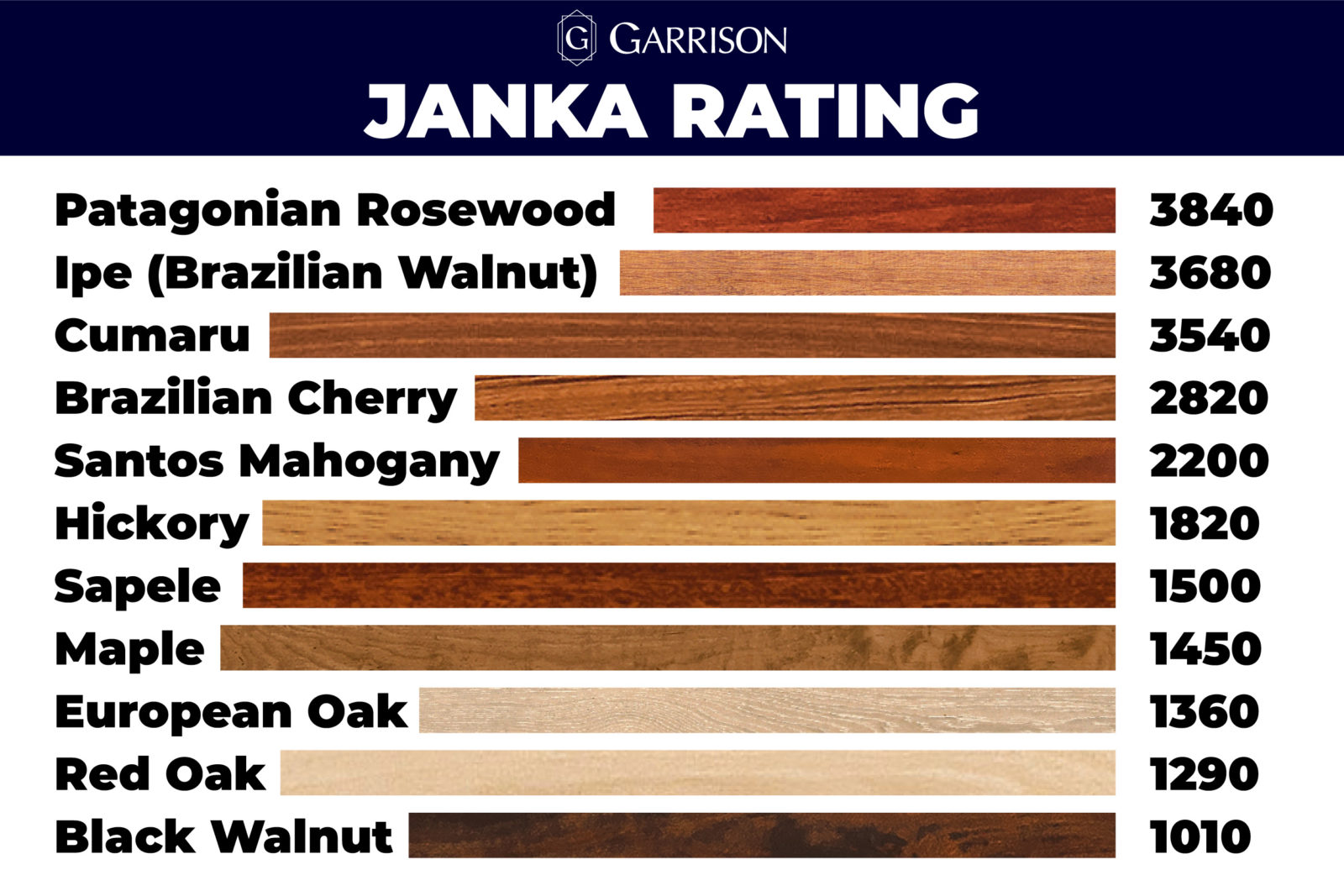
One of the best ways to measure a wood species’ durability is through the Janka hardness test. The Janka rating measures how much force is required to embed a steel ball into a wood sample, indicating its resistance to dents and wear. The higher the Janka rating, the harder and more durable the wood.
Here’s a general guide to Janka ratings:
- Softwoods (Below 1,000 lbf): More prone to dents and best for low-traffic areas.
- Mid-Range Hardwoods (1,000 – 2,000 lbf): A balance of durability and aesthetics, suitable for most homes.
- Extremely Durable Hardwoods (2,000+ lbf): Highly resistant to wear, perfect for busy households and commercial spaces.
Softwood Options: Beautiful but More Delicate
Softwood species, such as pine and walnut, offer a warm and inviting aesthetic but tend to be more prone to dents and scratches. These options are better suited for low-traffic areas.
Example: Walnut Natural – Smooth from the Garrison II – Smooth Collection
Hardwood Options: A Balance of Beauty and Strength
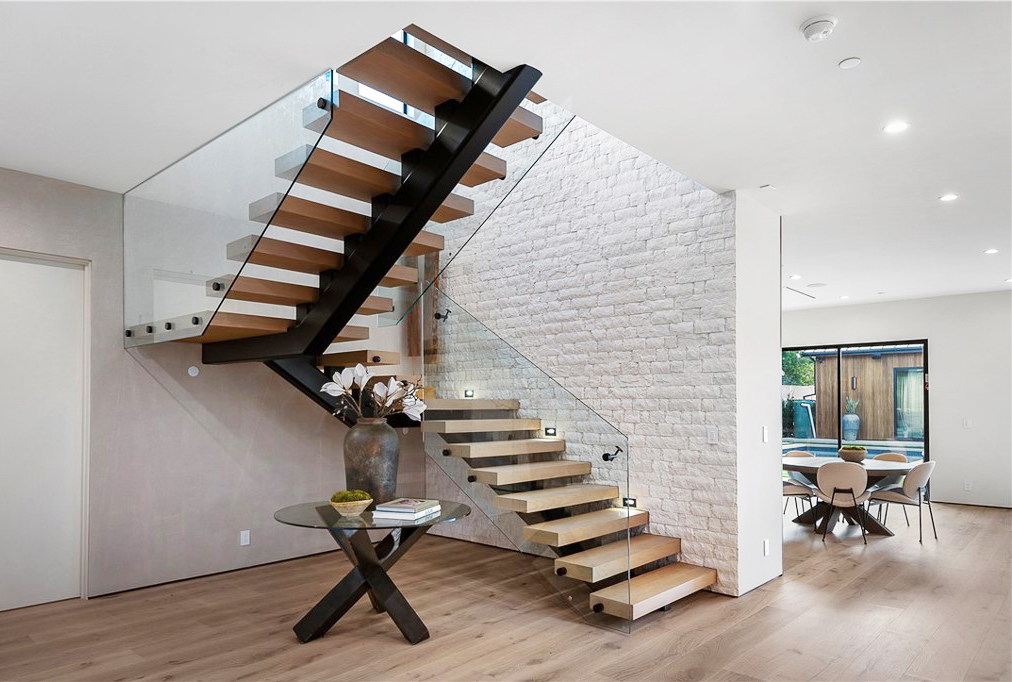
Mid-range hardwoods like oak, maple, and hickory provide a good balance of durability and elegance. They are commonly used in residential spaces and can withstand moderate foot traffic. These woods typically have Janka ratings between 1,200 – 1,800 lbf.
Example: European Oak Walden from the Beverly Hills Collection
Most Durable Hardwood Options: Built to Last
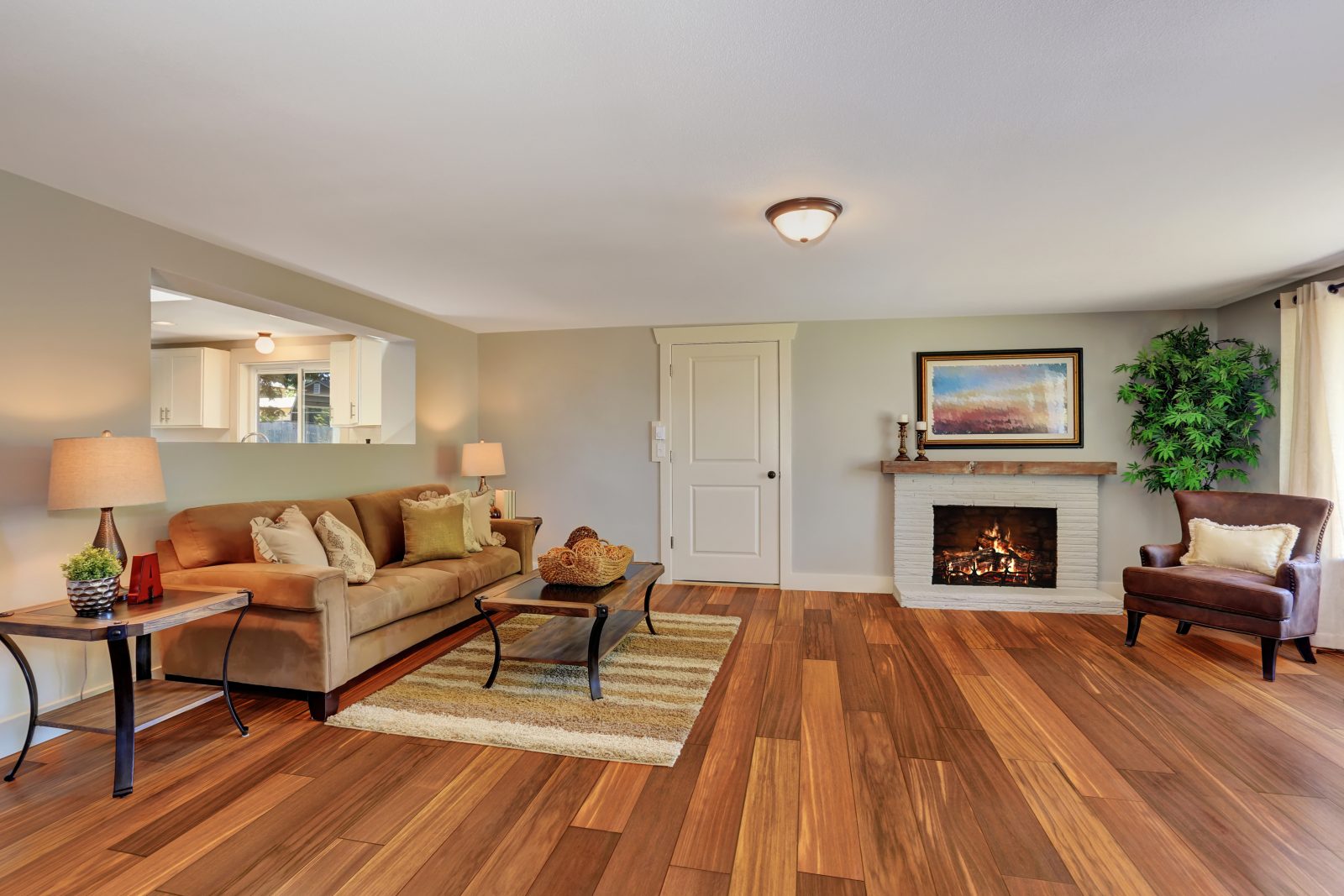
For the highest level of durability, opt for extremely hard woods such as Brazilian walnut (Ipe), white oak, or hickory. These species offer superior resistance to wear and tear, making them ideal for busy homes and commercial spaces. Many of these woods have Janka ratings exceeding 2,000 lbf, ensuring long-lasting performance.
Example: Santos Mahogany from the Exotics Collection
Other Considerations
- Wear Layer Thickness: Opt for engineered hardwood with a thicker wear layer (at least 3mm) to allow for multiple sandings and refinishings.
- Core Material: Birch plywood cores are the most stable and durable choice, offering superior performance compared to high-density fiberboard (HDF) cores, especially for wider planks.
- Finish: Look for UV-cured or moisture-cured urethane finishes for added durability and protection.
Choosing the Right Engineered Hardwood for Your Needs
When selecting engineered hardwood, consider your lifestyle and the specific demands of each room. For high-traffic areas, go with a harder wood species and a strong finish. If you prioritize aesthetics and are willing to take extra care, softer woods can still be a great choice.
Need help selecting the perfect durable engineered hardwood? Contact us today or visit one of our showrooms to explore our premium flooring options.
